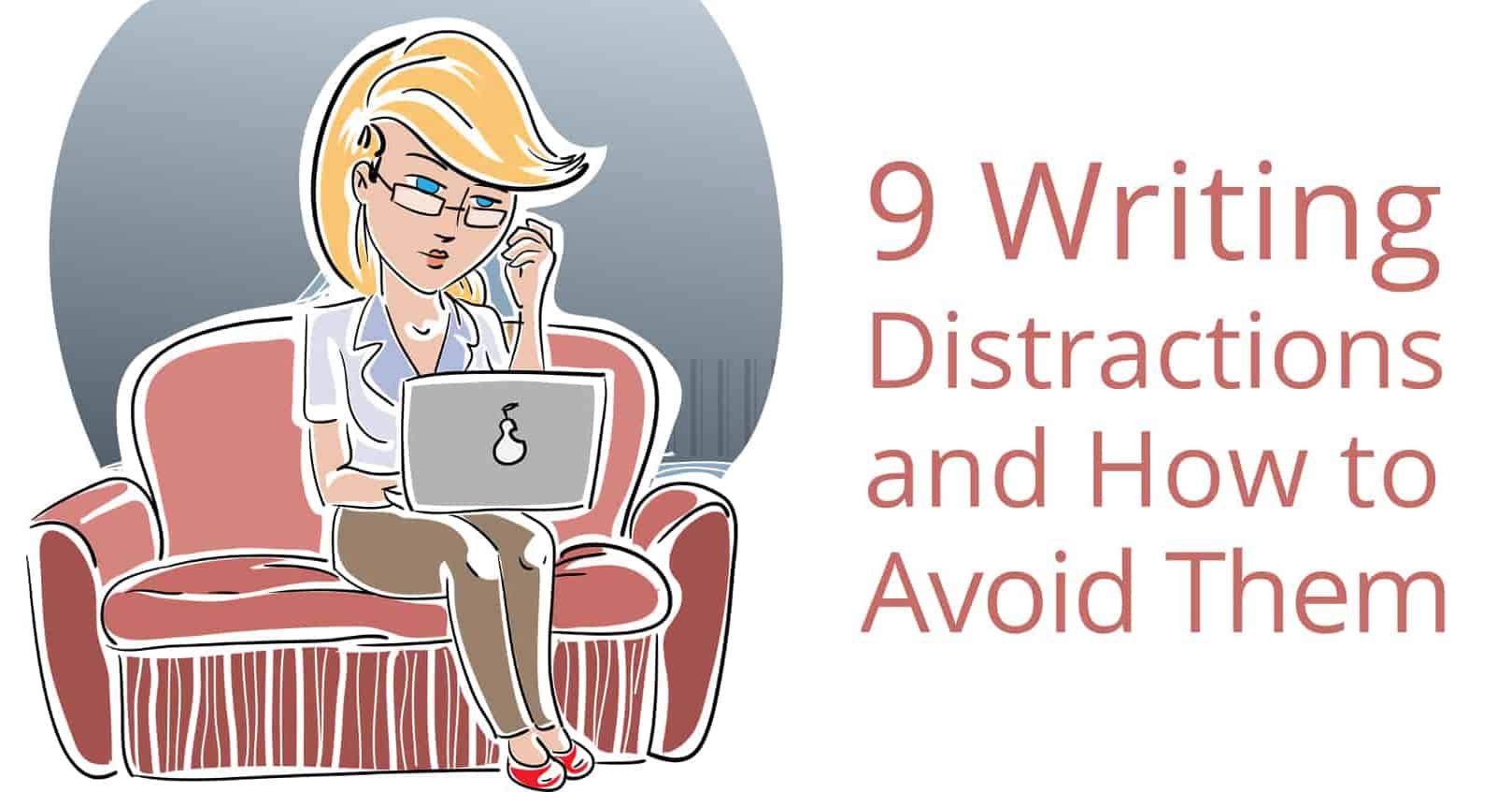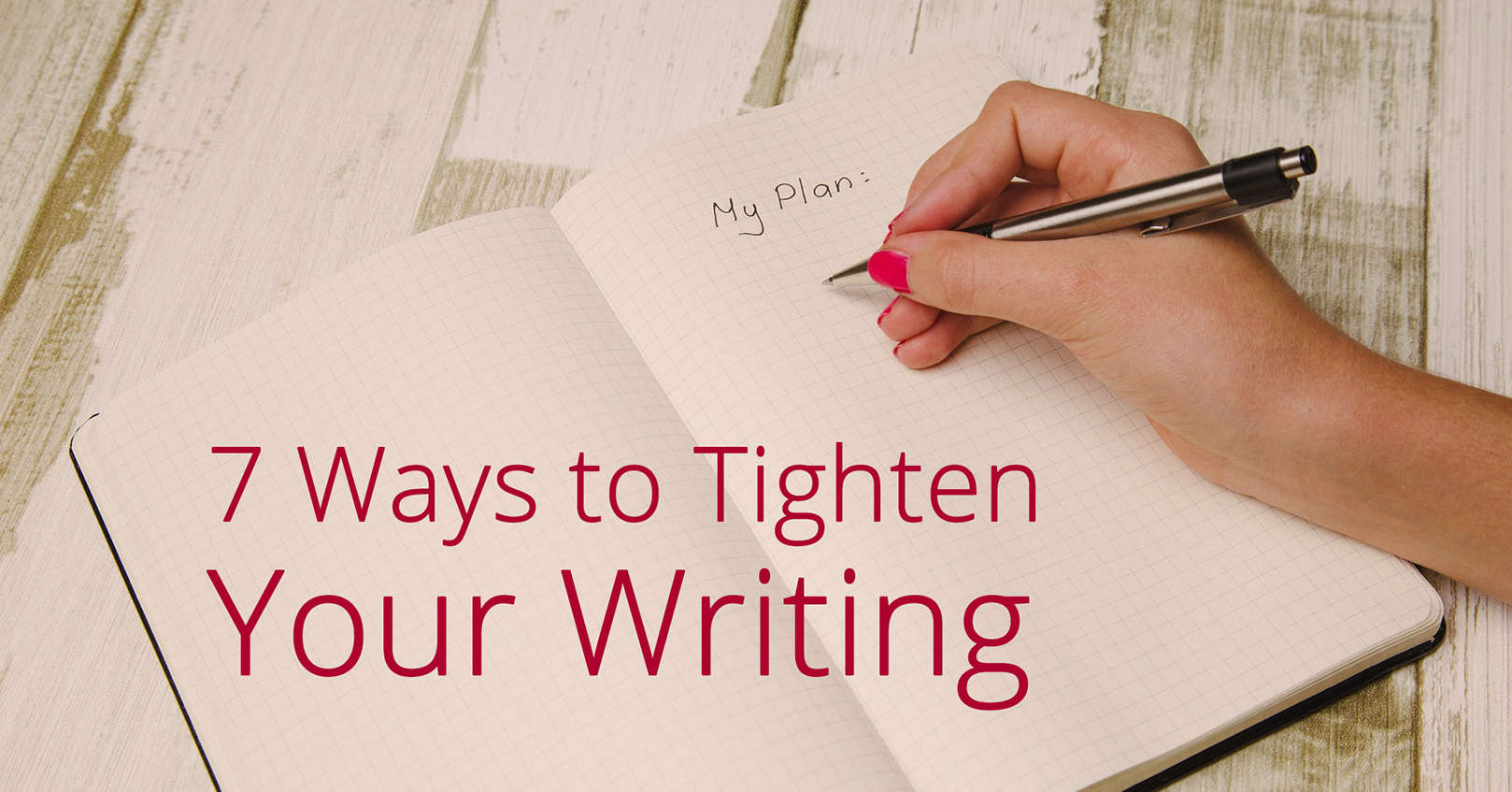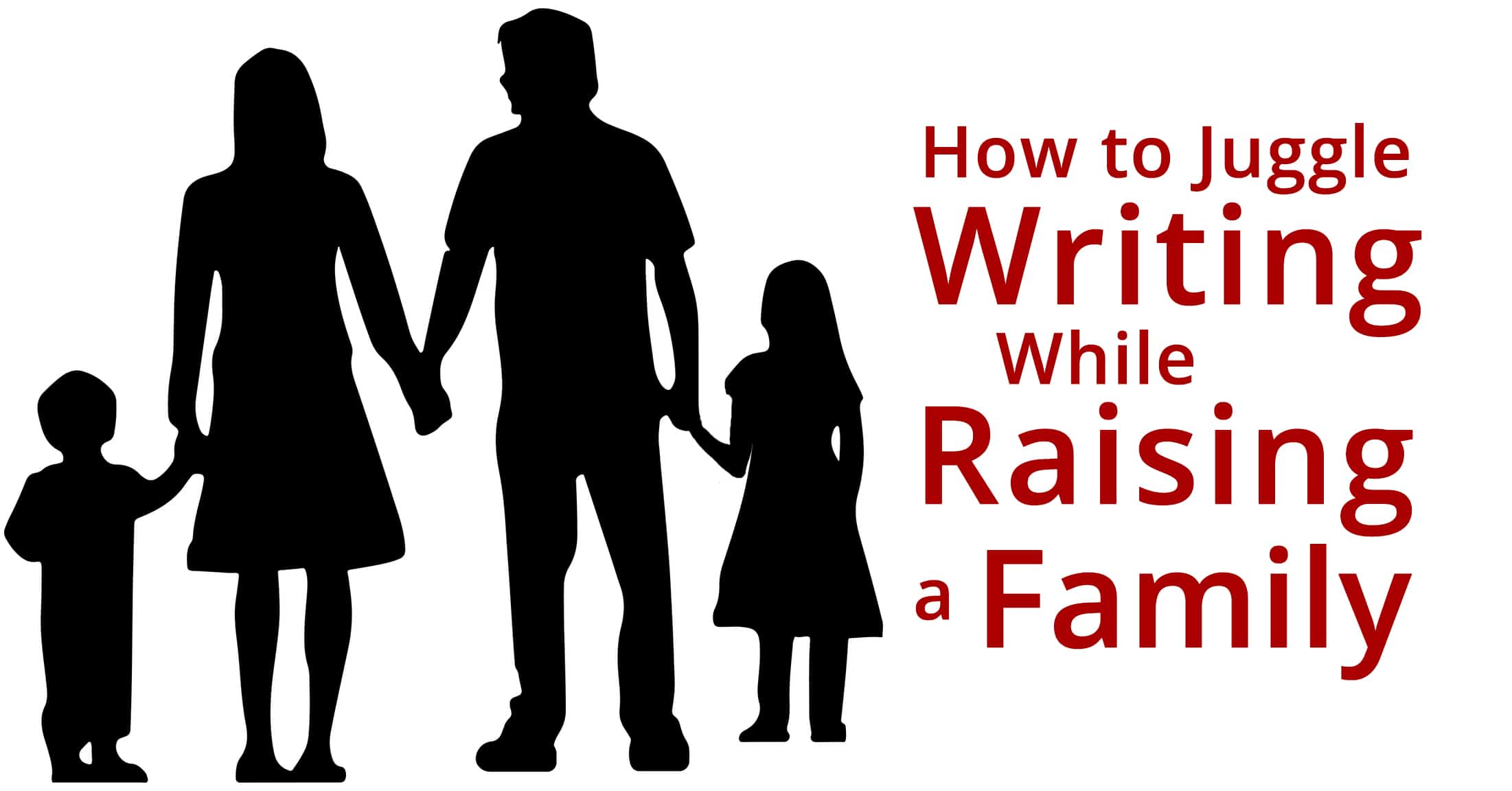
Do you ever sit down at your computer, then promptly get distracted from your writing goals? Do any of the following writing distractions sound familiar? Next time you run into these distractions, try one of our tips!
1. Social Media
Are you spending too much time browsing Instagram, scrolling through Facebook, watching videos, or reading comics? Try some of these ideas!
- Give yourself a set amount of time to get on social media (maybe 15 minutes) each day. This doesn’t include the time you use social media as a marketing tool for your books.
- Use one day a week to set up your social media posts for your author profiles; that way, you won’t get distracted by social media on other days of the week.
- If you can’t keep yourself away, download an app that blocks social media for you, such as Freedom, SelfControl, or StayFocused.
2. Screaming, Hungry Children
If you have children, you’ve likely experienced this writing distraction. Try some of these tips!
- Move to a deserted island. (Just kidding . . . mostly.)
- Make enough food for dinner that gives you a lot of leftovers. Your kids can reheat the food themselves in the microwave for snacks or other meals without bothering you.
- Teach your kids how to make sandwiches (perhaps cut cheese for them in advance, or buy pre-sliced cheese).
- Establish a schedule with your kids so they know what times they can bother you. They’ll prefer to talk to you during those times because they know you’ll actually listen to what they’re saying, instead of just replying, “Uh-huh, Uh-huh . . .”
3. Falling Asleep
It happens—between writing, raising children, and even working a second job, there is little time for sleep. Maybe these tips will help:
- Go to bed an hour earlier each night to get more sleep, or take a nap halfway through the day. Sometimes taking a quick 30-minute nap and coming back refreshed is better than staring at a screen for a couple hours, trying not to nod off.
- Exercise before sitting down to work. This gets your blood pumping and wakes you up. Also, it’s healthy.
- Open the blinds or curtains. Sunlight is a great way to stay awake.
- Get quality sleep at night. This means avoiding blue light in the evening, not eating right before bed, not drinking caffeine late in the day, and going to sleep and waking up at the same times every day.
4. People Knocking or Calling
When you work from home, you have to deal with everyone who comes to the door. On top of that, your family and friends know you work from home, so they may be tempted to call and chat during the day. If these writing distractions happen to you, try these ideas:
- Explain to friends and family that you have a work schedule and will not answer the door or phone except for an emergency. No, you can’t babysit their children or run an errand. After work, yes, but not during.
- Don’t answer the door or phone during your work hours. If you were working in an office, you wouldn’t be there to answer, so don’t answer when you’re working at home.
- Consider adding your office hours to your cell phone’s voicemail. That way, anyone calling knows to call later, outside of your working hours.
- Put your phone in do-not-disturb mode during your work time.
5. Losing Focus
Sometimes you begin writing just fine, but start losing focus. Maybe it’s one of the reasons we’ve already mentioned, or maybe you have other thoughts on your mind, but it happens. Maybe these ideas will help:
- Use the Pomodoro Method.
- Take a very short break to do something fun or interesting, then come back ready to work hard.
- Try a creative writing exercise where you just write for 15 minutes and see what happens. This works as both a break and a way to get those creative juices flowing again.
- If you haven’t yet, get up and get ready for the day, as if you were really getting ready to go into an office. This puts you in the right mindset to get to work.
6. Waiting for Inspiration
What about those times when you want to write and are ready to write, but you can’t seem to get started? Have you ever sat there, waiting for inspiration to strike? Believe it or not, this is a writing distraction.
- Start brainstorming ideas. Anything goes. This can get you back into that writing space.
- Turn off your screen and take 15 minutes to meditate and think about your book and what will happen in it. Don’t touch your phone or your computer. Just think.
- If you’re really stuck, it may be time to try a new hobby. Trying something new opens up a world of writing possibilities.
7. Researching and Researching
Some authors hate researching; others love it. It’s easy to get carried away researching your novel and put off actually starting it. Try these tips to get past this writing distraction:
- Set a research deadline. When you hit that date, your research is done, and it’s time to start drafting.
- Create an outline for your book so you can see where the research holes are, instead of spending too much time researching something you don’t need to research.
- Start writing now. If you find an instance where you feel you need to do more research to write the scene correctly, take a break to research the needed elements. Then get back to writing.
- If you are writing well and need a few research tidbits, but can finish the scene without them for now, just type a big XXX and a note to yourself in brackets [RESEARCH THIS] or [DOUBLE CHECK RESEARCH] and continue writing. Only stop writing if you feel you’ll end up rewriting more without the information. After you finish the book, there is plenty of time to make sure you have the correct tidbits there to give your story authenticity.
8. Clutter
Clutter on your desk, in your office, or even in your home can be a huge writing distraction. Here are some ways to handle it:
- Clean up your desk before writing every day. Throw out stuff you haven’t used in months.
- Assign your children chores so the house can at least be kind of clean.
- Go work in a cafe or a library or outside—that way, you don’t have to even worry about the clutter in your home.
- Minimize digital clutter by silencing your phone, closing your email, and even disconnecting from the Internet.
9. All the Other Things You Need to Do
You probably have a huge to-do list, and that can easily be a writing distraction. Try out these tips:
- Write out your to-do’s and prioritize what needs to get done that day. If something doesn’t need to be done that day, put it out of your mind—you’ve written it down and can take care of it later.
- Get your errands done early in the morning or last thing in the day, like you would if you worked in an office. This minimizes disruptions.
What writing distractions do you deal with and how do you handle them? We’d love to hear in the comments below!















Writing at off hours (late at night/early morning) avoids a lot of distractions. The downside is interruptions during your sleep. There are a number of things I can now literally do during my sleep and then go back to bed. It used to be that any interruption and I’d be awake for good.
Working with headphones also blocks out ambient noise. I pick music to match the emotion of the scene and have classified my music collection.
This is point-on! I am so easily distracted so I’m happy to have reminders and tips for not letting myself do that. Thanks!